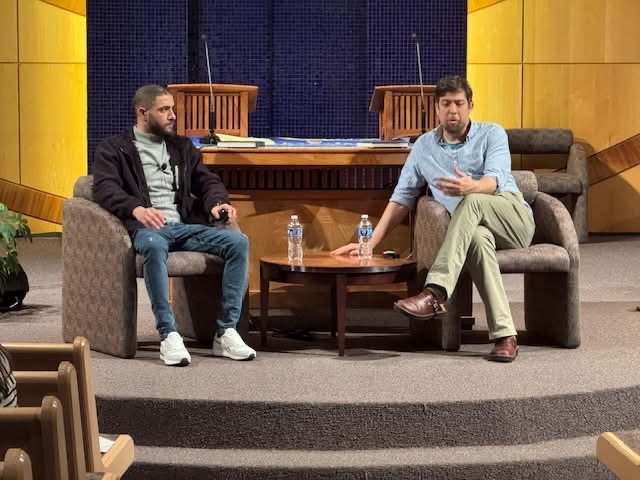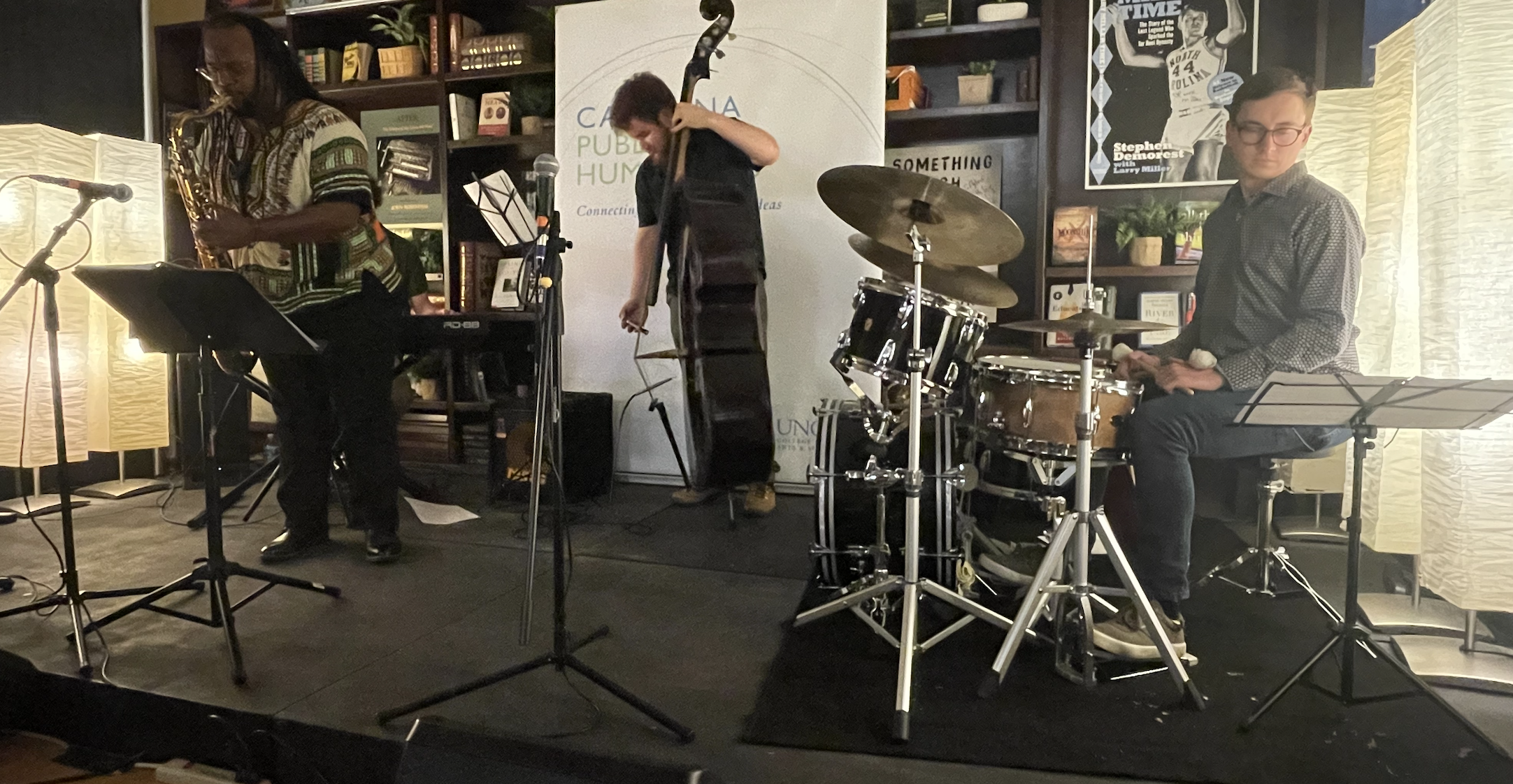Judea Reform Congregation, the main Reform synagogue in the Durham-Chapel Hill area, hosted two peace activists on Sunday from the Parents Circle – Families Forum, a joint Israeli-Palestinian organization of families who have lost loved ones in the decades of violence.
Both speakers shared their personal stories of losing a younger sister, with both of them describing a strong desire for revenge as their initial reactions. They discussed the difficult process of eventually learning to humanize and respect the other side, which they had both previously feared and distrusted.
The Israeli, Guy Elhanan, had a sister who was killed by a Palestinian suicide bomber. Eventually, it was an appreciation for Arabic music that led him to learn the language, after which he started teaching at schools administered by Hand in Hand, an Israeli network of integrated bilingual schools that foster equality and inclusivity among Jewish and Arab students.
“This process of negotiating with vengeance and understanding, what does it want from me and where can I send it, took a lot of years for me,” he said. “This actually allows us to, I think, mourn in a more positive way, rather than to be all the time defensive because of the reason they were taken from us.”
He said he has come to see these efforts of encouraging mutual education and understanding as the best way to counter the cycle of violence that killed his sister.
“Be pro-connections, be pro-bilingualism, be pro-heterogeneity,” he said. “Don’t stick with your own, because the message that we bring to you, what I would like you to take from this message, is our mix, is our togetherness, is our the fact that we choose each other as family.”
The Palestinian, Aram Aramin, said it was his father who steered him away from a path of violence after his sister was killed by an Israeli soldier. Aramin said when his father joined the Parents Circle – Families Forum, he initially saw these efforts for reconciliation instead of revenge as a betrayal of his sister’s memory. But when he was eventually exposed to people on the other side who’d also lost loved ones, he finally was able to see their humanity.
“When I started to hear a lot of stories like my brother next to me here, and a lot of brothers and sisters in the forum, I started to find that I lose the fear of the others and the hate for the others, and they became a human being,” he said. “It took me seven years to understand that my color of blood and your color of blood, it’s the same color of blood, and my pain, it’s your pain. It’s the same pain.”
He highlighted the shared love for the land that both sides see as their spiritual home, and mutual desire to live on it peacefully as something in common that should guide the relationship between the communities.
“I believe so much that this land is just gifted from God for both sides, Palestinians and Israelis,” he said. “And we have to learn how to share this land together, or in the end we’re going to make it, from the lovely Holy Land, two big graves for those crazy nations.”
Rabbi Hannah Bender, who was a main coordinator of the event, emphasized how they believe it is important for people who are far away from the conflict to try to understand the experiences of the people actually living through it.
“We have so much information about global conflicts and global trauma at our fingertips on our phones, and even though we are absorbing the information of the trauma that so many humans are going through, in so many ways it still really flattens humanity into a sports game of cheering on who you want to win” they said.
Joel Slaff, a congregant who attended the discussion, said the event succeeded in deepening his understanding of what people there are experiencing.
“I feel like I have more of a vocabulary and more perspective,” he said. “I just think the event in general, this is what needs to be done. This is what needs to be had, these conversations.”
Another attendee, Rebecca Essinger-Bosworth, said the event made her feel more hopeful overall about the possibility of eventual peace.
“I feel that what they brought to us allows me to believe that there is still hope,” she said. “I really liked the comment about, ‘True change comes out of love.’ I thought that was very powerful, and just hearing them call each other ‘brother.’”
Chapelboro.com does not charge subscription fees, and you can directly support our efforts in local journalism here. Want more of what you see on Chapelboro? Let us bring free local news and community information to you by signing up for our newsletter.



